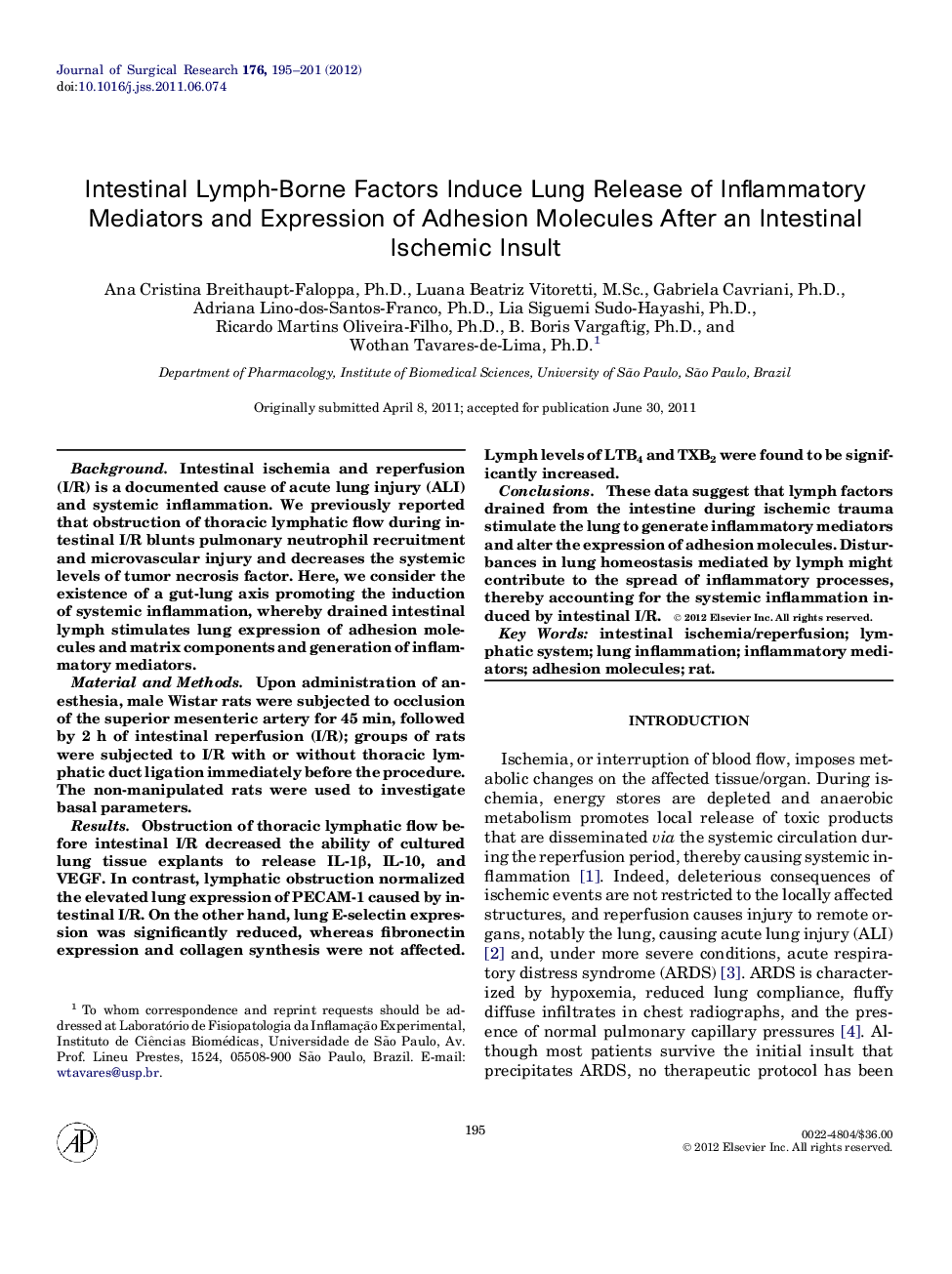| Article ID | Journal | Published Year | Pages | File Type |
|---|---|---|---|---|
| 4301281 | Journal of Surgical Research | 2012 | 7 Pages |
BackgroundIntestinal ischemia and reperfusion (I/R) is a documented cause of acute lung injury (ALI) and systemic inflammation. We previously reported that obstruction of thoracic lymphatic flow during intestinal I/R blunts pulmonary neutrophil recruitment and microvascular injury and decreases the systemic levels of tumor necrosis factor. Here, we consider the existence of a gut-lung axis promoting the induction of systemic inflammation, whereby drained intestinal lymph stimulates lung expression of adhesion molecules and matrix components and generation of inflammatory mediators.Material and MethodsUpon administration of anesthesia, male Wistar rats were subjected to occlusion of the superior mesenteric artery for 45 min, followed by 2 h of intestinal reperfusion (I/R); groups of rats were subjected to I/R with or without thoracic lymphatic duct ligation immediately before the procedure. The non-manipulated rats were used to investigate basal parameters.ResultsObstruction of thoracic lymphatic flow before intestinal I/R decreased the ability of cultured lung tissue explants to release IL-1β, IL-10, and VEGF. In contrast, lymphatic obstruction normalized the elevated lung expression of PECAM-1 caused by intestinal I/R. On the other hand, lung E-selectin expression was significantly reduced, whereas fibronectin expression and collagen synthesis were not affected. Lymph levels of LTB4 and TXB2 were found to be significantly increased.ConclusionsThese data suggest that lymph factors drained from the intestine during ischemic trauma stimulate the lung to generate inflammatory mediators and alter the expression of adhesion molecules. Disturbances in lung homeostasis mediated by lymph might contribute to the spread of inflammatory processes, thereby accounting for the systemic inflammation induced by intestinal I/R.
